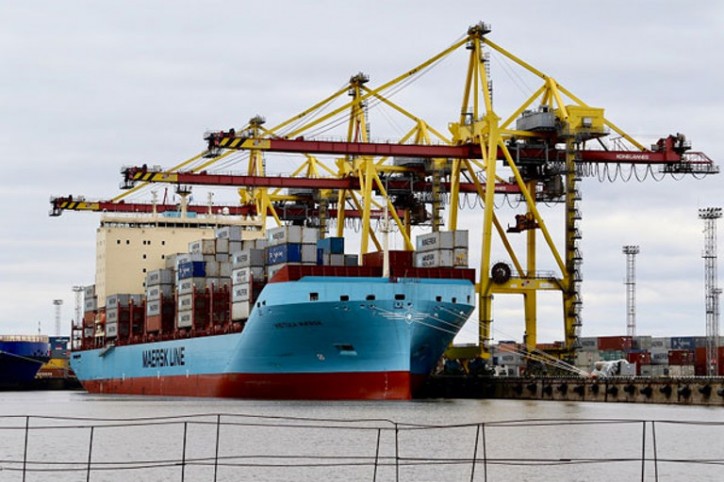Boston-based Sea Machines Robotics announces yesterday that it has signed a contract with A.P. Moller-Maersk, of Copenhagen, Denmark, to trial its industry-leading perception and situational awareness technology aboard one of the company’s new-build Winter Palace ice-class container ships. The deal is significant not only to Sea Machines and Maersk, but also to the larger maritime industry as the installation marks first time computer vision, Light Detection and Ranging (LiDAR) and perception software will be utilized aboard a container vessel to augment and upgrade transit operations.

The solution chosen by Maersk is the latest in Sea Machines’ portfolio and uses artificial intelligence (AI) to improve at-sea situational awareness, object identification and tracking capabilities. Similar to Advanced Driver-Assistance Systems (ADAS) commonly found in automobiles – which alerts drivers of roadway hazards and prevent accidents – Sea Machines’ system uses advanced sensors to collect a continuous stream of information from a vessel’s environmental surroundings, identify and track potential conflicts, and efficiently display the knowledge in the wheelhouse. The system facilitates safer and more efficient maritime operations. Maersk’s goal of the collaboration is to prove the technology aids the seafarers, can remove the line of sight restriction from the bridge, and provides the infrastructure for a future autonomous collision avoidance system.
“We are extremely proud that the world’s largest shipping company selected Sea Machines as their advanced perception and autonomous technology provider” explained Michael Johnson, founder and CEO, Sea Machines. “This partnership with Maersk marks our first foray into the shipping sector and allows us to positively contribute towards the operator’s technology goals. Our mission is to propel the maritime industry forward with 21st century technology and it’s exciting to see the growing demand for Sea Machines products.”
“Our team first met Sea Machines around three years ago when they were developing the concepts of their first autonomous systems, and already we were impressed with their technical capability, planned product path, and practical understanding of the future needs of the marine market,” said P. Michael A. Rodey, senior innovation manager, A.P. Moller-Maersk. “For this containership situational awareness program, we aim to prove the technology increases our safety, efficiency, and reliability. Autonomous vessels are not an end goal for Maersk nor is unmanned vessels, what is more of interest is the technology along the journey and the value it brings.”
This news is the latest in a series of announcements highlighting Sea Machines’ continued progress. Most recently Sea Machines disclosed the opening of a second location in Hamburg, Germany. The new center of excellence is now supporting the company’s growing demand for engineering, sales and marketing across Europe. The company is also managing a pilot program with Tuco Marine, of Denmark, to test the autonomous technology aboard ProZero workboats.
Sea Machines introduced the world’s first industrial-grade control system to provide autonomous and remote vessel control for workboats and other commercial marine vessels. The SM300 serves operations looking for level 3 operator-in-the loop autonomy in survey, spill response, dredging and security/surveillance. Sea Machines is also actively developing advanced perception technology and navigation assistance technology for a range of vessel types.
Source: Sea Machines